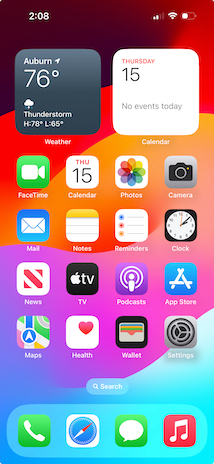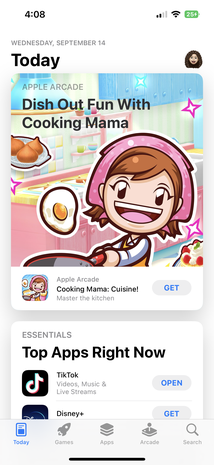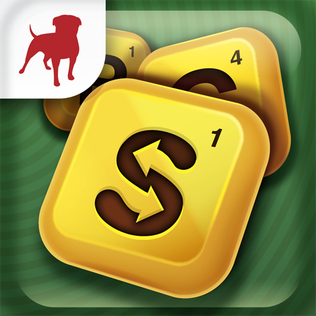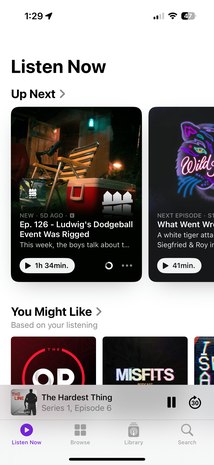
iOS is a mobile operating system developed by Apple Inc. exclusively for its smartphones. It was unveiled in January 2007 for the first-generation iPhone, launched in June 2007.

The App Store is an app marketplace developed and maintained by Apple, for mobile apps on its iOS and iPadOS operating systems. The store allows users to browse and download approved apps developed within Apple's iOS SDK. Apps can be downloaded on the iPhone, iPod Touch, or iPad, and some can be transferred to the Apple Watch smartwatch or 4th-generation or newer Apple TVs as extensions of iPhone apps.

Tweetie was a client for the social networking service Twitter. There was a mobile version that ran on iPhone, iPod Touch, and iPad, and a desktop version ran on Mac OS X Leopard, Snow Leopard and Lion.

Bloons Tower Defense is a series of tower defense games under the Bloons series created and produced by Ninja Kiwi. The game was initially developed as a browser game, built upon the Adobe Flash platform and released in mid 2007. Later games in the series expanded to support various mobile platforms, including Android, iOS, Windows Phone, PlayStation Portable, Nintendo DSi, Windows, Linux and MacOS. Games in the Bloons series older than Bloons TD 6 are available through the Ninja Kiwi Archive on Steam.
Game Center is a service by Apple that allows users to play and challenge friends when playing online multiplayer social gaming network games. Games can now share multiplayer functionality between the Mac and iOS versions of the app.

Marco Arment is an American iOS developer and web developer, podcaster, technology writer and former magazine editor. As a developer, he is best known for being chief technology officer for Tumblr and creating Instapaper and Overcast.

Words with Friends is a multiplayer computer word game developed by Newtoy. Players take turns building words crossword-puzzle style in a manner similar to the classic board game Scrabble. The rules of the two games are similar, but Words with Friends is not associated with the Scrabble brand. Up to 40 games can be played simultaneously using push notifications to alert players when it is their turn. Players may look up friends either by username or through Facebook, or be randomly assigned an opponent through "Smart Match". Players can also find potential opponents using Community Match.

Word Streak is a word game developed by Zynga with Friends for iOS and Android and released in January 2012. Gameplay is similar to that of Boggle—players try to find as many words as possible in a jumbled 4x4 grid of letters by connecting adjacent letters to form words within a two-minute time frame - though with extra features and a different scoring system. Words may be formed vertically, horizontally, and diagonally. Scramble with Friends is one of the top ranking games in the iOS application store, available as both a free ad-supported version and an ad-less paid version. Scramble with Friends replaced Scramble Challenge at the end of 2011, but did not retain the solitaire option of the latter.

OS X Mountain Lion is the ninth major release of macOS, Apple Inc.'s desktop and server operating system for Macintosh computers. OS X Mountain Lion was released on July 25, 2012, for purchase and download through the Mac App Store, as part of a switch to releasing OS X versions online and every year, rather than every two years. Named to signify its status as a refinement of the previous OS X version, Lion, Apple's stated aims in developing Mountain Lion were to allow users to more easily manage and synchronise content between multiple Apple devices and to make the operating system more familiar.

Threes is a puzzle video game by Sirvo, an independent development team consisting of game designer Asher Vollmer, illustrator Greg Wohlwend, and composer Jimmy Hinson. The game was released on February 6, 2014, for iOS devices and later ported to Android, Xbox One, Windows Phone, and Windows. In Threes, the player slides numbered tiles on a grid to combine addends and multiples of three. The game ends when there are no moves left on the grid and the tiles are counted for a final score.

Puzzlejuice is a 2012 indie puzzle video game for iOS produced and developed by video game company Sirvo. The game is a combination of Tetris, tile-matching, and Boggle: players rearrange falling tetromino blocks into rows of similar colors, which turn into letters that are cleared from the board by forming words. The fast-paced game also includes challenges and power-ups. The development team consisted of three people; programmer Asher Vollmer initially developed the game alone, before reaching out to artist Greg Wohlwend for advice on the aesthetics. Composer Jimmy Hinson produced the game's music.

SpellTower is a 2011 puzzle video game by Zach Gage in which the player creates words from a jumble of letter tiles to clear the screen before it refills. The game has several game modes and a multiplayer battle mode. The impetus for the game—the concept of combining elements from Tetris and Boggle in what was a prototype of the puzzle video game Puzzlejuice—inspired Gage to create SpellTower. The game was released for iOS in November 2011 to generally favorable reviews. Versions for OS X and Android followed over the next two years. In 2017 SpellTower Minutes was released. This browser-based Flash game created special "blitz" like modes not found in the mobile releases. A new iOS version released in 2017 swapped out the unnamed dictionary and began using Merriam-Webster's Third New International Dictionary, Unabridged. French and Dutch language specific versions were also released. A 2020 release, SpellTower+, added new game modes, cleaner visuals, and a jazz soundtrack.

tvOS is an operating system developed by Apple Inc. for the Apple TV, a digital media player. In the first-generation Apple TV, Apple TV Software was based on Mac OS X. Starting with the second generation, the software is based on the iOS operating system and has many similar frameworks, technologies, and concepts.

Loren Brichter is an American software developer who is best known for creating Tweetie and the pull-to-refresh function. After atebits, his self-founded company, was bought by Twitter, Inc. in 2010, he developed a word game for iOS called Letterpress.

Pull-to-refresh is a touchscreen gesture developed by Loren Brichter. It consists of touching the screen of a computing device with a finger or pressing a button on a pointing device, dragging the screen downward with the finger or pointing device, and then releasing it, as a signal to the application to refresh the contents of the screen.
The Apple TV app is a line of media player software programs developed by Apple Inc. for viewing television shows and films delivered by Apple to consumer electronic devices. It can stream content from the iTunes Store, the Apple TV Channels a la carte video on demand service, and the Apple TV+ original content subscription service. On iPhone, iPad, iPod Touch, Vision Pro, and Apple TV devices it can also index and access content from linked apps of other video on demand services.

Blackbox is a 2016 puzzle game developed and designed by Ryan McLeod. In Blackbox, the player solves puzzles by discovering and exploring the device's hardware and operating system; rarely do solutions involve touch mechanics. As the player progresses more puzzles are unlocked. Blackbox won a 2017 Apple Design Award for innovation and excellence in design and accessibility and was recognized as a 2018 Webby Award Honoree in the Puzzle and Best Visual Design categories. It has also won a Golden Apple from Apple Vis as “Best iOS Game” for 2017.

Apple Podcasts is an audio streaming service and media player application developed by Apple Inc. for playing podcasts. Apple began supporting podcasts with iTunes 4.9 released in June 2005 and launched its first standalone mobile app in 2012. The app was later pre-installed with iOS beginning October 2014. The Apple Podcasts directory features more than two million shows. Apple Podcasts is available on iOS, iPadOS, macOS, watchOS, tvOS, CarPlay, Microsoft Windows operating systems, and on Amazon Alexa devices.

AirTag is a tracking device developed by Apple. AirTag is designed to act as a key finder, which helps people find personal objects. To locate lost items, AirTags use Apple's crowdsourced Find My network, estimated in early 2021 to consist of approximately one billion devices worldwide that detect and anonymously report emitted Bluetooth signals. AirTags are compatible with any iPhone, iPad, or iPod Touch device capable of running iOS/iPadOS 14.5 or later, including iPhone 6S or later. Using the built-in U1 chip on iPhone 11 or later, users can more precisely locate items using ultra-wideband (UWB) technology. AirTag was announced on April 20, 2021, made available for pre-order on April 23, and released on April 30.















